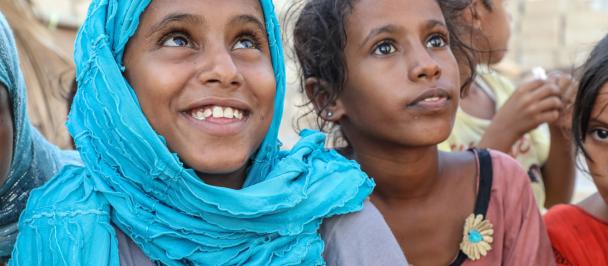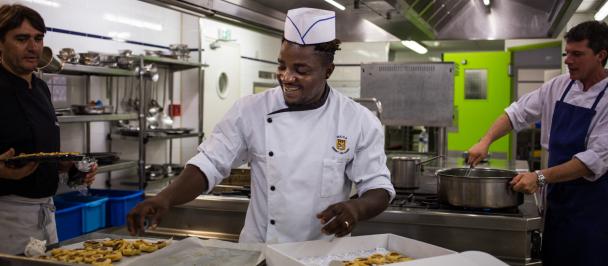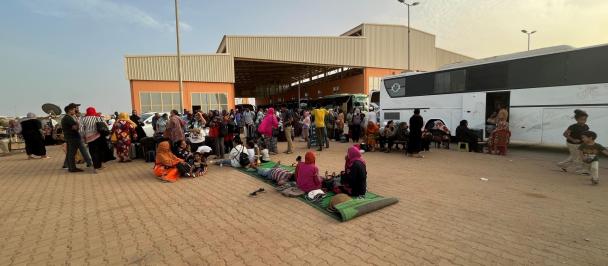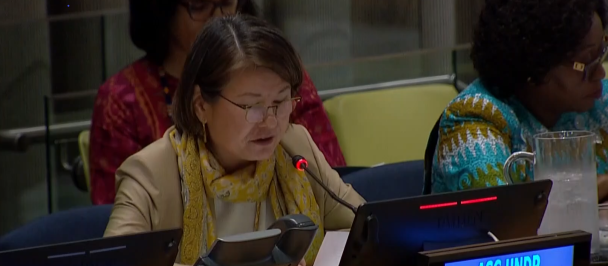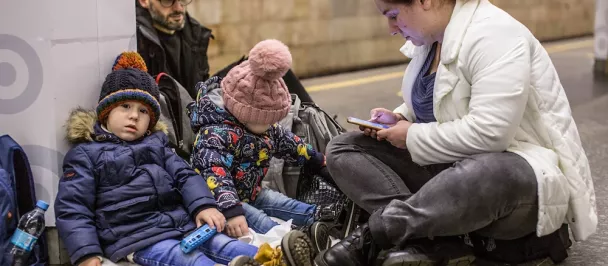Distinguished Guests, Ladies and Gentlemen,
It is my great pleasure to welcome you to this side-event in the margins of the 63rd United Nations Commission on the Status of Women. The United Nations Development Programme is honoured to join the Permanent Missions of Norway and Sri Lanka in hosting this discussion.
It is my honour to welcome:
Ms. Mari Skåre, Deputy Permanent Representative of Norway to the United Nations;
Mrs. Swarna Sumanasekera, Chairperson of the National Committee on Women of Sri Lanka, (on behalf of the Hon. Chandrani Bandara, Minister of Women and Child Affairs of Sri Lanka);
Hon. Aida Kasymalieva, Deputy Speaker of the Parliament of the Kyrgyz Republic;
Hon. Veronica Kadie Sesay, Chair of the Women’s Caucus, Parliament of Sierra Leone.
I also acknowledge Ms. Sepali Kottegoda, Director of Programmes, Women and Media Collective, Sri Lanka, and Mr. Charles Chauvel, team leader of the Inclusive Political Processes team (GP / BPPS) at UNDP who will moderate the panel discussion.
The focus of the 63rd CSW is on social protection systems, access to public services and sustainable infrastructure for gender equality and the empowerment of women and girls.
Social insecurity and conflict are linked: we know a lack of social protection and social safety nets for women and girls leaves them more vulnerable and are often disproportionately impacted by conflict. In some regions and countries, where there is a nexus of conflict and violent extremism, women’s equal access to public services, social protection and basic infrastructure is rolled back or non-existent.
Over the past 18 years, the global understanding of the gendered nature of conflict has grown substantially, in large part due to the ‘Women, Peace and Security’ agenda (WPS agenda), which has since been reaffirmed in the Peacebuilding and Sustaining Peace Agenda, as well as in the 2030 Agenda and its 17 SDGs.
Yet, there remains a gap between the ambition of our commitments on one hand, and on the other, the necessary political will and financial support to take the WPS agenda forward. While many countries have made WPS commitments, implementation of the agenda needs continuous support at the national level. Only 43 percent of WPS National Action Plans (NAPs) include an allocated budget for their implementation, and 28% of NAPs do not include measures for their monitoring and evaluation.
In assessing reasons for slow progress, we noted little or no engagement of national parliaments and their members, who are naturally positioned to accelerate the implementation of the WPS agenda. After all, they are mandated to oversee the executive branch and national budgets, pass laws and act as a bridge between governments and citizens.
Recognizing the need for greater engagement of parliaments and civil society is a powerful way of promoting participation of women and girls in all aspects of peace and security.
Over the past few years, UNDP has sought to re-orient its parliamentary strengthening work toward supporting parliaments and their members to take a meaningful and proactive role in advancing the Sustaining Peace and 2030 Agendas. This effort has been consolidated in our Global Project on the Role of Parliamentarians as Partners for Women, Peace and Security.
This event showcases the real-life experiences from the Global Project. Over the past year, the Global Project has been piloted in the legislatures of three countries: Kyrgyzstan, Sierra Leone and Sri Lanka. It was made possible thanks to the continued support from the Government of Norway.
The experience from each pilot country offers us a new and different insight into how the engagement of parliaments can produce unique results on women, peace and security:
- In Sierra Leone, the Parliament passed a historical resolution on WPS - a major step forward for women’s rights in the country;
- In Kyrgyzstan, the Parliament has developed its own Parliamentary WPS Road Map, which identifies specific actions for MPs to prioritize;
- In Sri Lanka, MPs have worked to integrate WPS issues and responses sectorally through multiple national development frameworks, rather than a standalone WPS plan.
The project owes its success largely to the engagement and support of today’s panelists, who have championed WPS through their respective ministries, parliaments and organizations. This would not be possible without the continued support from the Government of Norway. I look forward to a more in-depth discussion of their experiences working on WPS at the national level, lessons learned and challenges ahead.
It is my hope that today’s discussion will leave us a clear way forward on how UN entities, governments and civil society can better work together to implement the objectives of the women, peace and security agenda, with the ultimate aim to support women’s access to social protection and good quality public services, and full and equal participation in all levels of peace and security efforts.
Thank you.

 Locations
Locations
